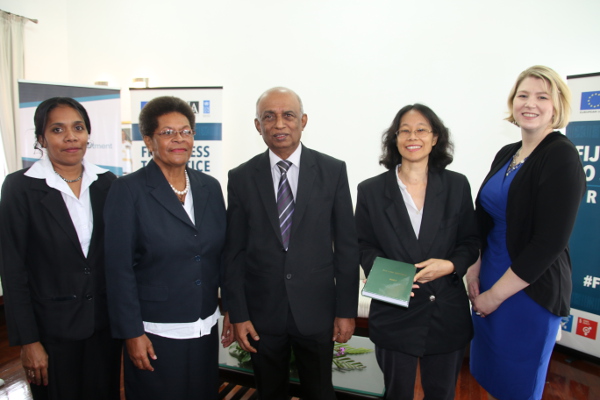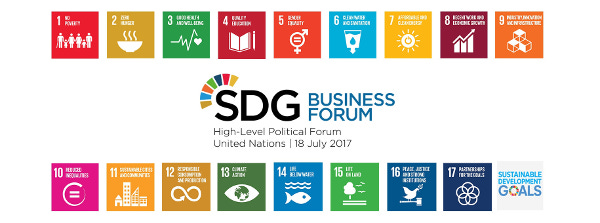Elsevier
How can innovations in chemistry, energy, and biotechnology jointly be applied in low-resource settings for the benefit of a community?
This LabLinks meeting combines the expertise in the applied biosciences of Trends in Biotechnology, Joule’s interest in both scientific and sustainability developments in energy, and Chem’s focus on basic chemical science with relevance to the United Nations Sustainable Development Goals.
Accuity,
September 2017
Correspondent banking is the cornerstone of the global payment system, designed to serve the settlement of financial transactions across country borders. It allows companies and individuals to safely move money around the world and supports and encourages global trade. Since the financial crisis, tighter regulations - and in particular the regulatory penalties imposed for violations of anti-money laundering (AML) – have caused western banks to rethink their global strategy. The risks of doing business in many developing nations are beginning to be seen as outweighing the financial benefits brought by correspondent banking activity. As a result, US and European banks have reduced their correspondent banking activity in the riskiest regions.
Brightmine,
16 August 2017
SDG target 10.3 is concerned with eliminating discriminatory laws. In the UK, it has been successfully argued before an employment tribunal that a discrimination claim - thrown out during the fees regime because the claimant did not pay - should be revived. This sets a precedent for reducing inequalities based on the ability to pay.
LexisNexis Legal & Professional,
LexisNexis Australia, 8 August 2017
The goal of SDG 16.3, to promote the rule of law at the national and international levels and to ensure equal access to justice for all, relies to a large extent on access to the primary materials. The stability of the legal system of a State is usually assessed by the availability of its laws and their application and LexisNexis is proud to have been chosen as a partner to continue publication of the authorised Fiji Law Reports. Partnership for the goals is key to their success, as envisaged by SDG 17.
RELX,
Press Release, August 2017
The RELX Group Environmental Challenge, with a $50,000 prize for the first place entry and a $25,000 prize for the second place entry, is awarded to projects that provide sustainable access to safe water where it is presently at risk and/or access to improved sanitation. This directly assists SDG 6.1 and 6.2 to achieve universal and equitable access to safe and affordable drinking water and access to adequate and equitable sanitation and hygiene, for all. Find out more about the 2017 winners.
RELX,
August 2017
2016 first prize winner of RELX Group Environmental Challenge, Loowatt, developed a waterless and energy-generating toilet system that is clean and odourless. Loowatt's patented core technology and luxury festival toilet business in the UK is helping to transform the lives of communities in Antananarivo, Madagascar's capital, through access to quality sanitation and job creation.
LexisNexis Legal & Professional,
LexisNexis Blog, August 2017
In July the 2017 Sustainable Development Goals (SDG) Business Forum recognised the critical role of business in delivering on the promise of sustainable and inclusive development. In this article, we elaborate on the SDG business case, and how businesses can engage with the SDG framework; driving business growth and productivity, whilst contributing to the better world envisaged by the 2030 Agenda for Sustainable Development.
Farmers Weekly,
28 July 2017
This article is taken from the series "The View From Here", in which farming women from around the world give an insight into rural life. From the challenges of making an income to support the family and local economy to dealing with extreme weather and untamed lands, these women give their unique perspective on working in a male-dominated industry. It helps to highlight the importance of SDG 5, Gender equality.
LexisNexis Legal & Professional,
Business Insight Solutions, 10 July 2017
Businesses with a year-end of 31 March 2016 were the first ones required to publish their modern slavery and human trafficking statements to comply with the UK Modern Slavery Act. One year later, several reports have measured and scrutinised the quality of businesses' modern slavery statements.
SDG target 8.7 is to take immediate and effective measures to eradicate forced labour, end modern slavery and human trafficking and secure the prohibition and elimination of the worst forms of child labour, including recruitment and use of child soldiers, and by 2025 end child labour in all its forms.
LexisNexis Legal & Professional,
4 July 2017
To mark US Independence Day 2017, LexisNexis Legal & Professional has released new data for 98 countries indicating that the stronger a country’s rule of law, the greater it performs against measures of life expectancy, civil liberty, and happiness. This helps to demonstrate how SDG 16 Peace, Justice and Strong Institutions underpins all of the SDGs.






